I try not to be a mess, but I live life rather frantically. Come with me as I learn more about Japan, independence, and myself as I study abroad in Tokyo.
Don't wanna be here? Send us removal request.
Link
Although due to COVID-19 I am unfortunately unable to go to Japan anymore, please check out my StoryMap about values in Japanese culture!
0 notes
Text
The Japanese Government
The Japanese government exists in multiple components as a constitutional monarchy, a type of government where there is a monarch or figurehead with some power, but a great amount of control resides with the government itself. In Japan, the monarch is the emperor, and the rest of the government is composed of the National Diet which runs legislature, the Supreme Court which controls the judiciary, and the Cabinet which houses the Prime Minister and the primary administration.
Although the Emperor acts mainly as a ceremonial figurehead, he has a few important duties, such as the appointment of the Prime Minister and the Chief Justice of the Supreme Court, giving him some control over how the Cabinet and Supreme Court will be run. The current Emperor, Naruhito, recently succeeded his father, Akihito, on May 1st, 2019, ushering in the Reiwa era as the Heisei era closed.
Designated first by the Diet and then appointed by Akihito is the Prime Minister, currently Shinzo Abe, who has been in office since 2012. Known largely for creating Abenomics, an economic policy directed towards pulling Japan out of deflation and back on its feet, he is in charge of the Cabinet, which houses the Ministers of State. These Ministers handle the country's budget, foreign relations, industry, and economics, among a number of other various areas. Headed by the Prime Minister, the Cabinet reports to the Diet for the approval of legal bills.
The National Diet is in charge of the creation of laws and splits into two different houses – the House of Councilors, known as the upper house, and the House of Representatives, the lower house. Although the two are expected to preferably come to an agreement with most legal matters, the House of Representatives has the final say in the case of divided opinion. The Prime Minister is first a member of the Diet before being recommended by its members to be appointed by the Emperor, the Diet itself acting as representation of the Japanese public. The House of Representatives is elected by the people, who vote first for a candidate and then for a political party, many of which exist in Japan. While the majority party has been and is currently the Liberal Democratic Party, or LDP, this is fairly recent in Japanese history, since the country only returned to a democratic system in 1946 after World War II. Through the House of Representatives, the public is able to have some, if little, control over politics.
Finally, the Supreme Court primarily controls the court system, which presides over all courts. While the Chief Justice is appointed by the Emperor as well, the other judges are designated by the Cabinet, which acts as a further example of how intertwined each facet of the Japanese government can be. Power is divided out so no branch of the government has complete control – although the Prime Minister acts as the figurehead for Japan, he does not have ultimate jurisdiction over every process.
In terms of current political debates, the government itself is very slow to act on decisions. While they had planned to discuss the stabilization of imperial succession during this fall, the Cabinet has pushed back this discussion to April of 2020. It is possible that progress may be influenced by the current scandal facing Prime Minister Abe, who has recently been suspected of utilizing the government's cherry blossom viewing party as a way to treat his own supporters, something which is illegal as it is a tax-payer funded event. Abe's former guest list for the party is curiously missing, supposedly having been destroyed for unknown reasons on the day it was requested to be presented to a lawyer. Although he is currently the Prime Minister who has held office for the longest period of time in Japanese history, his ownership over the position may not last much longer if more investigation into this case unearths further incriminating details.
0 notes
Text
Letter to You
Dear Kate,
I have gotten used to writing journals, putting down my thoughts for a general audience, but now, speaking to myself – to you – may be a bit more difficult. Still, I will do my best and present goals to you that I would like to you to work towards accomplishing in Japan. You are excited, scared, and very apprehensive about going, but I want to you to remember that it will always be your own perspective that creates the reality you experience. Think self-fulfilling prophecy – things will turn out badly if you expect them to go wrong, and more likely than not turn out well if you have positive expectations. Of course, this is not to say that things will not go wrong and you will not mess up, but that your mindset goes to the halfway point and is met there by the outside world, and you have some power over how you process experiences. With that strange introduction, I'm going to describe some of the things I want you to work towards as you study abroad. You're actually going to live in Japan – soak that in! Wow. Okay, here we go.
First, as you know, the primary goal is for you to expand your language ability and become better at Japanese. Even though you have had some time off (probably too much) from being in the classroom, you have created a great foundation for improving your skills in a native environment. You have worked hard, studied, and performed well – that means something, and I don't want you to discredit that from yourself. You find excitement in learning new kanji, seeing vocabulary connections, and realizing you can connect with someone in another language on a deeper level. But, please don't forget that you only have the classroom foundation; you hardly know anything about functioning and communicating in terms of the cultural norms, expectations, behaviors, and underlying meanings. Besides being very difficult just to learn to a basic degree, Japanese is an extremely high-context language, and you will have to navigate it in a whole new way when in Japan. While I want you to keep up your skills in the language classes you will take at Aoyama, focus your energy on communicating with classmates, locals, and practicing your skills in practical ways. I want you to think of it the same way we talk about grad school – just as straight A students should be fine with the occasional B when they are putting their energy towards research time in the lab, I don't want you to worry about school as much and really focus on gaining cultural and communication experience. Your speaking skills improved a lot just after spending two weeks listening to and speaking Japanese during D-term, and if you keep practicing even more intensely during these four months, you can get even better. I believe in you that you can do this; it can and will happen if you just apply yourself.
Along with this, I want you to become more independent and willing to talk to people. You will be living on your own and will have to talk to people to ask questions about how to do things, to order food, and basically anything else. As an introvert, it'll be especially hard, but I really want you to try to spend a limited amount of time in your dorm room and at the dorm at all, period. Even if it's just sitting in the Starbucks above the scramble crossing to do homework (like you dream of), get out in public and be around other people. I really want you to join some clubs at school, too, like seeing if there's a dance or Kpop club you could join to find classmates with interests similar to yours. Take the train to a new location and explore by yourself for a day to soak in the different parts of the city, or try to eat at a new spot for lunch on some days to broaden your experience. Really make an effort to find friends somewhere, anywhere, and try to do fun things with those people. Conversation can be difficult enough for you in English, so prep some small talk questions and responses so if the opportunity arises, you can be comfortable. Japan isn't a country where you can just go up and talk to people, which is good since that fits more your style of communication (you are not your father), but it means people are probably less likely to talk to you, and you will need to gain that initiative when the moment is right. You were able to make three friends in just a few days during D-term, so I have full faith that this is possible for you. Maybe this goal may seem silly to others, but it will be big for you, and I want you to try your best. 一生懸命頑張ってね?自分と約束して。
Finally, not only because this will all be overwhelming, but because this is something current me is working on for you and future you right now and will be a process throughout your life, I want you to be kind to yourself and continue to practice loving yourself. That might mean something different every day – it could be drinking enough water, taking a break from the world and staying in bed, or watching a TV show you like, but it could also be pushing yourself to have a conversation, going to an event you don't want to attend, or starting an assignment you've been dreading for days. I want you to keep assessing what is good for you, how you can help yourself, and what you need the most at any given moment. I also don't want you to beat yourself up too much for mistakes you (will) make, or have expectations that are way too high for you to ever reach, as Mari said. Loving yourself can mean something different every day, but ultimately it means accepting yourself for who you are with all of your faults and weaknesses and knowing you are worthy. It means taking care of yourself and learning more about who you are. It also means accepting change and growth as you strive to be a better and kinder person, but knowing that you are okay as you are. This would be quite a lot to start while abroad, so I want you to at least continue this process in Japan as I have been trying to practice it for about a month or so so far. My hope is that it will make the journey a bit easier for you and that you can be happier in the long run. I desperately want you to be okay, and I'm sure you will have a better experience if you continue to actively love yourself in small ways every day. It'll be alright.
So, basically, I want you to push yourself in language, culture, friendships, and adventures, but also know when enough is enough. Culture shock may be difficult, but remember that you have lots of people supporting you, even if they are farther away physically. Most of all, I am supporting you and am on your side, and I want to ensure that you stay on your side as well in the future. Don't give up on yourself or throw yourself away, just take some time to stop when you need to and breathe, assess, and get back on your feet. You're going to have an amazing journey, and though we both know it'll be hard, it'll also be so worth it. Enjoy your youth while you can, and let yourself have fun as much as you protect yourself. It's really funny to me in thinking that I, present Kate, is setting goals and giving advice to future Kate, since you know way more than I could ever right now. But at least this letter should serve as a reminder for where you were and how you hoped to grow in Japan. I hope you are able to do the things you want to do, and that you love yourself through it all.
Love, Kate
0 notes
Text
Your Name - 君の名は - Review

(Image source: Funimation) Your Name, known in Japanese as Kimi no Na wa (君の名は)and written and directed by the brilliant Makoto Shinkai, is not only one of the highest-grossing films ever in Japan, but an artistic and emotional masterpiece which keeps giving more just when you thought there is nothing else it can possibly offer. Although it was released in the summer of 2016, I did not first experience it until the fall of 2017 and have since watched it multiple times – it never fails to make me cry. With the combination of Shinkai's beautiful direction and vision, the gorgeousness of the animation, and the soundtrack written by the Japanese band, Radwimps, which turns each scene into a perfectly timed music video, it is a must-watch. Far from being just “one of the best teen movies in years” as labeled by David Sims of The Atlantic, it is one of the best movies in years, period. To get just a taste of the experience of Your Name, listen to the soundtrack here as you read!
Your Name focuses on Taki Tachibana, a young man commuting to high school each day and working a part-time job as a waiter in the flurry of Tokyo city life, and Mitsuha Miyamizu, a high schooler living in the rural town of Itomori next to Tokyo who assists her grandmother and younger sister with running the family shrine. Mitsuha, who is somewhat fed up with the lack of anything in her small town wishes to live in Tokyo as an ikemen, or handsome boy – and she gets her wish. For reasons unknown, Mitsuha and Taki end up switching bodies repeatedly, living each others lives on random days and improving them as much as messing them up. The two learn to communicate with each other through leaving messages in their phones, and they establish a friendly, sometimes tumultuous, rhythm. However, Your Name is much more than a switching bodies rom-com – there are many cultural facts and themes which appear in the film and contribute to its plot and beauty. My discussion from here on out will have some spoilers, so beware!

(Image source: Wallpaper Access) Unexpectedly to the viewer upon first watch, Your Name is not just a romance film, but a disaster movie. SPOILERS: Although they seem to be switching bodies in real time, Taki and Mitsuha are separated by three years, and the latter actually was killed by a part of a meteor than annihilated the entire town of Itomori. In the wake of the tragic 9.0 Tohoku Earthquake of 2011 that led to nearly 16,000 deaths, Your Name is a representation of the disaster culture in Japan and how vulnerable the population is to natural forces. Earthquakes occur daily, and being surrounded by water also means the territory is afflicted by tsunamis, flooding, and a number of other disasters. They are so prominent, the government has released a guide for citizens to have a plan to handle earthquakes, buildings are built to withstand them, and there are specific drills and plans in schools to ensure safety. Japan is very focused on forethought and preparing for unknown situations, somewhat because its citizens constantly live in a state of uncertainty. Your Name shows how this is applicable when nature acts beyond anyone's expectations – part of the meteor breaks off to hit Itomori unexpectedly – but also how the people are able to join together and rise up in the face of disaster, as Mitsuha, Taki, and their friends do in developing a plan to save the town. Disaster and the potential for it is a daily part of Japanese life, but Your Name also demonstrates the necessary preparedness for it and cultural aspects of its presence in Japan.

(Image source: kiminonawalove) Next, Your Name presents a depiction of the religion, Shinto, and its presence in Japan through Mitsuha's involvement with her family's shrine. Along with her younger sister, she acts as a miko (巫女), or female shrine maiden, and participates in dancing rituals and the making of kuchikamizake (口噛み酒), a special kind of sake where rice is is chewed, spat out, and left to ferment. Mitsuha finds her position very embarrassing, especially when she must perform her miko duties in front of the judgmental eyes of her classmates, but the shrine's large presence in her life symbolizes the more traditional side of Japan. Her grandmother's devotion to the shrine and emphasis on her granddaughters' duties to be involved in running it also emphasizes how central tradition can be to a family. This is especially in contrast with Mitsuha's father, who has left the shrine for politics and, partially due to this, has been alienated from the family. The shrine has a large influence around Mitsuha's daily life and her character, and demonstrates how religion in Japan can impact a person even when it is more of a infused cultural and familial tradition than something the practitioner actively chooses to follow on their own. Finally, Your Name portrays various aspects of the Japanese language which may be unnoticed to English speakers, beginning with the title itself. Based upon one of the last few lines of the movie, the title can be more directly translated as “your name is?”, asking a question that is unanswered, or existing as a sentence left incomplete. For me, this adds a different connotation where the film is in search of an answer, adhering to the theme of how it takes the protagonists on a search through time and space to find each other, while the English title is more absolute and final. Names are the focus, but the feeling of each sentence is different. In other instances of language, Taki and Mitsuha must navigate their worlds when switching bodies in terms of gender due to the pronoun for the self (the English equivalent of 'I') having many forms of expression in the Japanese language. A short comedic scene occurs when Mitsuha is in Taki's body with his friends, and she cycles through a number of pronouns, searching for the one Taki normally uses. Watashi (私)is is standard, but too feminine; watakushi (私)too formal; boku (僕)is masculine but not strong enough; but ore (俺)is the perfect fit, being masculine and carrying an air of confidence from the speaker. This is a joke lost on English audiences, showing the importance of the language to the comedy itself and also demonstrating the division between genders that starkly occurs in Japan. Pronouns like 'he' and 'she' are rarely used in reference to others, and gender portrayal gets to be chosen by the speaker themselves – still, as Mitsuha experiences here, that portrayal may be evaluated by others as strange until the pronoun they deem fitting is found. You can read more about Japanese pronouns – of which there are even more! – here.

(Image source: chimis-changa) While Your Name is a timeless classic which can appeal to audiences of any age, gender, and culture, it is still distinctly Japanese, and there are many ways that fact is highlighted throughout the movie. If you are ready to go on an emotional journey, witness gorgeous animation, or have loved the Radwimps soundtrack you hopefully have been listening to while reading this review, please pick it up! If you are still on the fence if it is worth your time, check out the music video for Sparkle by Radwimps which features scenes from the movie – it will surely make you curious for more!
1 note
·
View note
Text
Epiphany
After having a whole class period dedicated to the discussion of our society being monochronistic, it is fitting that I would choose to freewrite for a period of thirty of so minutes when I have given myself a limited time for this assignment. In terms of being received as a U.S foreigner in Japan, I think people will prematurely assume I am loud, rude, and narcissistic. Still, I think this will of course depend on the person's perception of and interests in American culture – this is obvious, but I experienced this when I was in Japan for D-term. My Japanese professor told some of the Japanese students we met there that Alyssa and I spoke Japanese, but only a few others were interested in us, specifically one bright student who spoke English very well, had been to the U.S., and was excited to go back soon (he is currently studying abroad in Minnesota). He especially interacted with a lot of us American students, mainly the guys who didn't speak Japanese, but also me and my friends. Thinking on it now, I also realize that I was able to talk to more students specifically because I could speak Japanese when they weren't as confident in their English, and that gave me the ability to know and connect to them more deeply, whereas this was not possible as much for the students who had a higher language barrier placed between them. I guess this doesn't really have to do with me being a U.S. American, but more being a U.S. American who can speak Japanese. Most everyone will simply perceive my appearance and make judgements on that alone, never getting the chance to talk to me. It's interesting, but this shouldn't be surprising.
As a U.S. American, I can imagine people will be wary of me and expect me to act out or transgress rules in various ways without caring, which I think is different from me personally since I try to be more conscientious. In terms of media stereotypes as for how I will be viewed by others, I think media will generally have portrayed Americans as assertive, opinionated, forceful, competitive, and uncaring for others; perhaps also violent? Although some of these things are accurate, I think they may be taken a bit to the extreme in the media, as we are hardly all people who shout and carry around guns. These preconceptions may be placed on me, which could make some wary of me, even though I hardly think I embody any of those characteristics too much (I am definitely not assertive or very forceful) – but, then, does what I think and my true personality even really matter? We've talked about identity and how it is something that others place upon you. No matter how I am or act, people can interpret my behaviors to see what they want to see or hear what they want to hear. I really am not in control of what people think of me, so all I can do is be aware of how they might think of me and think of how to handle situations where those perceptions may get me into trouble. I may be able to right or correct those perceptions sometimes, but more often than not, I will have to deal with it. This is somewhat of an epiphany I've just worked through (haha)!
For the topics of money and modesty, I am not sure how this will work since I will be in Shibuya, one of the most fashion-forward places in the city of Tokyo. Although I may be perceived as rich, I know from Mari that generally all the students who attend Aoyama are legitimately rich and always dressed in very high fashion. They care about brands and looking nice at all times, something which I am not sure if I can match. In comparison to them on campus I may not seem rich, but in other places that might be the case because of my whiteness. I really am not sure, and I guess that's okay. In terms of modesty, I also know that there are different ways of defining sexiness in Japan versus America and what clothes are too sexy – while we are generally (generally) okay with showing more chest and shoulders, girls rarely do this in Japan as it is considered too much. Collars and necklines are typically very high and conservative. Contrastingly, I have heard it is okay to show a lot more leg in Japan than it would be in the U.S., with girls often wearing very short skirts even when it is cold. Although I do not think I will have to worry too much about either of these limits, it is good to be aware of them and the potential consequences or stigma that may come from transgressing those cultural norms. Mari said that not too much could happen besides getting some shameful looks, but I still would like to adhere to the culture and try to blend in as much as truly possible. This has been kind of a weird journal, but I think I learned some interesting things about identity, presentation, and how little control I have over those things.
0 notes
Text
News in Japan - 11.13-11.20.

Image source. Shinzo’s Sakura Scandal On November 13th, Shinzo Abe, the prime minister of Japan, announced that the Japanese government’s annual cherry blossom viewing party would be canceled in 2020, the first time it has been called off since the tradition was born in 1952. This is in response to criticism claiming that he was planning to invite guests who were his supporters to the function, thus using taxpayer dollars intended for the event to further his own interest. Abe denied involvement on the 14th, and the event will be reviewed by the government. Still, an article from the 17th by the Jiji Press claims his opposition is anxious that he will respond as he has done in the past and dissolve the current session of the Japanese parliament, known as the Diet, for a snap election for the House of Representatives, all to distract from his current scandal. Abe has also been accused of potentially violating an election law for plans to use that same taxpayer money to host a dinner the night before the cherry blossom viewing party meant for his supports – however, the list of those guests has mysterious been lost. Abe firmly denies any of this questionable activity, but his opposition remains ruthless, indicating that the lost list is a rule violation itself.
Protesting Detainment
In wake of a number of foreign national citizens being detained by immigration services for months in different parts of Japan, a protest was staged on November 14th in Tokyo. Some of the detainees have been held for over half a year and protested themselves through hunger strikes, leading to one Nigerian man's death this past June. Rallying for the release of the detainees, or at least reconsideration by the government of the policy leading to their psychologically harmful detainment, the protestors who gathered on Thursday numbered around one hundred. The government has yet to respond. Daijosai
From the evening of Thursday the 14th of November to early Friday morning, emperor Naruhito conducted the ceremony of Daijosai, a ritual done when a new emperor has ascended to the throne. The ceremony is extremely private with only a few in attendance, and is composed of offering food to the goddess thought to be the mother of the imperial line, Ameterasu, and praying to her for a good future. Daijosai requires the construction of two buildings which the government will tear down only a month or so after the ceremony, costing around 2.5 billion yen (roughly $23 million U. S. dollars) – some citizens have sued the government for this, claiming that the assistance of religious institutions by the government violates the constitution. The government acknowledges this, but has claimed that things are different when it comes to assisting the imperial family.
Deadly Intent
Despite its relatively safe appearance, Japan has also had a number of curious crimes this week. An incident where a female sixth grader in Aomori prefecture was non-fatally stabbed in the throat was revealed on November 13th to have been the work of a 14 year-old middle school boy. Claiming to have wanted to kill someone, he is currently under arrest, and police are investigating his potential involvement in a similar case. Meanwhile, on November 18th an elderly woman in Fukui prefecture took responsibility for the murders of her husband and in-laws, who she claims to have strangled due to the heavy pressure of taking care of the three of them. Although it was suspected she may have taken medication to commit suicide, she was transported to a hospital, remains stable, and is awaiting further investigation into her case.
All sources found on Nexis Uni with accessible links added.
0 notes
Text
Mentor Report - Or, A Conversation with a Friend

~ My first night in Shibuya - (L-R) Kaho (kind student we met), Me, Madeline, Natalie (two of my friends on the trip), and Mari I have known Mari since 2017 because we took the latter two years of classes for our Japanese major in the same tight-knit class of students - we were together for each term except for when she studied abroad at Aoyama Gakuin University in the spring and summer of 2018. I met her on my first day as a transfer student at North Central, and I have always liked her bright, fun, and real personality and have been impressed by her smarts and ability with Japanese. To be honest, her interactions with Japan and Japanese culture have influenced me a lot, and I look up to her. We shared one memorable experience in particular on the D-term trip last December where she showed me and my friends around Shibuya. She was not on the trip, but staying with a friend in the area, and met us to introduce us to her city. After getting off the suffocating train at 5:30 on a Friday night, we popped out of the Hachiko entrance and were wowed by the neon lights, advertisements, and sheer number of people bustling about the square. Mari guided us across the famous Scramble Crossing, gave us a personal tour of the 109 fashion mall, and led us to an izekaya (Japanese bar/pub) she recommended, all while telling us about her life in the city. Her sense of fashion – bold, punk, and clearly influenced by the street vibe – was something I adored, and seeing Shibuya through her eyes made me fall in love with it. Upon hearing that Aoyama was only a five minute walk from the main crossing, I was more attracted to the area than ever. I met with some Japanese students in Shibuya later on in the trip when we went back to Tokyo, and the amazing time I had with them further emphasized my love for it. I think it was then that I knew I might want to study abroad, that I was capable of doing it, and that I had a good idea where I might want to go.

~ Shibuya 109 (November 30th, 2018) By the last term of my Japanese class, nearly all of my classmates had studied abroad in different parts of Japan, so I had heard a lot of stories, both good and bad, about living in the country and what it was like. Still, even though I had heard Mari's stories more candidly during throughout the year, it was interesting to interview her in a more concrete way about Japan. She confirmed that it is much like its ratings on various scales labeling it as collectivistic, high-context, and hierarchical – people are very much oriented toward thinking about the group, thinking about how their actions will affect the group as a whole, and how to best proceed so there is the best possible outcome for the group. There is a lot of context from the language based on what is not said in a conversation being more important than what is actually said, and hierarchies between people are honored with degrees of bowing and the level of diction or types of words used to address people (formal language is known as keigo, or respectful language). However, she said there is a big difference between what it is actually like versus how it is portrayed by the media and news. Popular media tends to display 'cool' or 'weird' things from Japan which are extremely technologically advanced or fun, and it becomes defined to the Western world as a magical land where people are all in harmony, live interesting lives, and few things go wrong. In reality, there is a lot of group-behavior and not a lot of conflict, but the lack of conflict and constant focus on efficiency can make it so a lot of people lose their voices and become a number in a swarm of people. There is also a dark side to the country, specifically with its working culture, which Mari labeled as the thing which surprised her the most about living in Japan. Being out late at night, she would frequently see salarymen stumbling down the road, drunk, or simply passed out on the side of the street from exhaustion. The commute to work may be so hard and the work week so long and demanding that it is simply easier for some to sleep in the middle of road rather than going home only just to leave early in the morning to return. It is the same thing for them everyday, and Mari described seeing all of their faces with neutral expressions, not so much from the politeness and apathy we are conditioned to think of, but simply because they are too tired. These adverse working conditions, demand for loyalty to companies, and difficulty in going home on time due to hierarchy-based social rules makes the Japanese average working individual have a very hard life, and this was something Mari was not expecting to see so starkly during her time in Japan.
In terms of differences found between Japan and America, Mari named some things that I was aware of and a few things which surprised me. In terms of differences, she mainly discussed how people tend to handle expressing themselves and showing who they truly are. In America we are very open about our emotions, how we feel about certain people or activities, and who we are as individuals. Someone may talk a lot and share very personal things without even being prompted, and this may make others either feel more intimate with that person, or very uncomfortable. I think our eager display of ourselves both has to do with individualism and our need as a low-context culture to always be stating our opinions aloud. Contrastingly, Mari talked about how people in Japan are far more private, specifically citing the Japanese concepts know as tatemae and honne. Tatemae (建前 - composed from the words 'to stand' and 'front') refers to the face we show to the public that does not know us; it is the face which is polite, properly in line with customs, and generally blends in with the rest of the population. Honne (本音, 'actual sound') is our true self who only we and perhaps our most intimate friends and family can ever know. In terms of Jungian theory, tatemae could be comparable to a persona, while honne refers to the self.
Mari also brought this up when describing the most important thing I should know about Japanese culture – the need for privacy and distance between others (this so vital that I noticed even the kanji for 'I' - 私 - means 'private'). Interactions between cashiers and customers are practically robotic, while here we may compliment someone or strike up a light conversation. People in Japan do not share private information unless they are particularly close, and sharing those types of things can indicate that the sharer feels intimate with the listener. If the listener does not see them in the same way, they can become very stressed from learning this information, which puts pressure on them due to the other person's expectations about the relationship. It seems to be like when you learn someone views you as their best friend when they are only an acquaintance to you. Although this is not directly being said, the Japanese would interpret sharing information of that level as a declaration with equivalent meaning. Mari talked about how Japanese are constantly thinking about what they share affecting others, and so most tend to share minimal or fanciful things that don’t really have substance from a Western perspective. She described it even as being “fake” sometimes, so you may never know what someone actually thinks about you. A person may agree to meet you somewhere, knowing they are not going to go – then, Mari said, they cancel at the last minute, but do not feel bad since they never intended to come in the first place. This seems to be a form of high-context communication where it is easier just to not show up and make an excuse rather than simply telling the person they do not like them or that they do not want to go. They are communicating their message still, but in a very indirect way. I can imagine this being very difficult to handle, especially when making friends, so I will be wary when I go to Japan. I do not want to be suspicious of or think badly of people, but I will try not to get my hopes up too high if plans somehow fall through.
Along that same line, she discussed how the night life and drinking culture may make it easier to establish relationships – in an informal setting, with your system slightly inebriated, it is psychologically easier to let go of the strict norms on privacy and become yourself. I imagine this is why bosses will go out to drink after work with their employees; it is very much a social monopoly of the worker's time and another part of the job (which isn't the best), but it functions as a way to get to know their coworkers more so than any functions occurring in the actual company building. I have heard from her and other Japanese students that Aoyama especially has a big drinking culture, and so while I don't want to be socially pressured into drinking, I realize I will have to do so (or at least hang out with the students at bars with a glass of water) in order to make closer friends at the school.
When finding similarities between America and Japan, Mari found it a bit harder to answer, but she eventually decided upon Japanese youth. Although the older generation is very focused on tradition, respect, and all other things typically Japanese, the younger generation is very progressive, open-minded, and ready for new ideas to incorporate into the culture. I think this must have something to do with the globalization of the world through the internet, and while this can be true wherever you go, I think it is particularly interesting in a country like Japan. America is generally (hypothetically, at least) about liberty, free thinking, individuality, and the idea of being able to do whatever you want if you work hard enough, based on the American dream. Older adults (especially baby boomers, nowadays) are more conservative when it comes to things like LGBTQ+ rights, abortion, and other topics, but in terms of ways of thinking about liberty and individuality, I do not think they are incredibly different from millennials – that is, in comparison to the gap between the younger and older Japanese. Japan is so deeply ingrained with tradition, specific ways of doing things, and going along with the collectivist views of the group that I feel young people are jumping a wider gap to get to progressive ideas about individuality and expressing themselves without having to abide by all of those rules and constraints. Mari said these contrasting perspectives belonging to the younger generation will make a great difference for the country in the future, and I am inclined to agree. I see this happening everywhere eventually, but I think Japan will alter greatly within the next few decades as new people come into power. I had not thought of this similarity before, but I still really agree with Mari's thoughts regarding this.
Although I have gained the same basic classroom education as Mari for the Japanese language since we had our last two years together, meaning that I didn't have much to ask her in this regard, she was able to give me one great tip – don't be afraid! She said that when she first got to Japan, she was terrified of using her Japanese, leading her to not speak it at all. Eventually, when she realized that she was never going to get better if she didn't try, she made an effort to speak it as much as possible, regardless of her fears, and that made all the difference. She advised me to try to speak as much as possible even if I don't know the right words – I should just try to get by and convey as much as I can, making a good effort without being worried about potentially offending anyone. I will get some free passes as a foreigner, and so I should simply try my best at all times. Mari has claimed frequently that the greatest influence on her improvement in Japanese abroad came from talking with people and interacting with others in the city, not from the daily language classes at school, and so I want to imitate that by getting past my introverted fears and really trying to interact with others. Still, she did express that this may be hard at times, especially in terms of how Japanese people view Americans.
Mari said they have a lot of misconceptions about Americans, generally viewing them as loud and obnoxious (true?) and all about football, McDonalds, and obesity. While she didn't experience any discrimination specifically for this, one interaction she often described was being spoken to in English by employees or cashiers when ordering, and then being complimented on her 'amazing Japanese' after responding back with a simple sentence in the language. Sometimes she would even ask questions in Japanese for them to reply “no English,” which she understandably found exasperating. I think it will be harder for me to just begin speaking Japanese when people try to converse with me in English, but I also know that this is the only way I will improve. Although I think this has more to do with me being foreign and white rather than specifically American, it is an assumption that will usually be placed upon me, one I need to be careful of as I try to live in Japanese society and speak the language. Being a foreigner, I also assume they will think I do not know the rules (which I generally do not), so I am glad that Mari gave me a few pointers there, too. I already knew about actively listening (aizuchi) while others are talking, as well as the social shaming for eating and walking at the same time, but she reminded me of these taboos and social behaviors to follow, so I will reinforce them in my brain before I go.
In discussing school and Aoyama in general, one thing Mari mentioned made me a bit more sure of myself and my decisions as far as living arrangements. She shared her story of how she was actually supposed to study abroad for a whole year, but once she arrived in September, where she had rented her own personal apartment, she felt incredibly alone, overwhelmed, and needed to come home after just a little while in Japan. Reflecting upon it, Mari advised me to not overestimate myself as she had done – she thought she could live all by herself in a new country without any kind of support system in place. She felt it was better for her to stay in the dorm upon returning to establish that community of international students, so I am happy that I am choosing to live there rather than on my own or in a sharehouse. I can get some privacy with my room, but I am still in a community. The only issue here she raised was that the international students can become clique-y and tend to only speak English with each other – because she really wanted to improve on Japanese, Mari removed herself from them more and more, eventually coming to treat the dorm as an apartment as she gained more Japanese friends outside of school. I do not want to get stuck in a comfortable bubble of only being with other international students, and so while I know I may not be adventurous as Mari or able to put myself out there, I want to make an effort to socialize in other places so this doesn't happen to me. I really want to improve my Japanese skills, and I can't do that if I keep speaking English.
In terms of Aoyama's school work, Mari described it as very light, with only a midterm and final exam, or equivalent papers. The Japanese language classes are a bit more difficult, but overall it is much less demanding than school in America. From what I know about the Japanese education system, everything is focused on getting into a good university, and as long as you graduate, you will be taken up by a good company where you can earn a nice salary. Job preparation does not really happen in college – once you are in the company, they will spend time training you to do your job. Depending on the quality of the college you go to, the company generally assumes that you are capable of doing the work they ask of you. Thus, one's time in college is typically referred to as ‘the spring break of life.’ Mari said we would be fine and not stressed whatsoever, but I am still a bit skeptical. I am extremely focused on my schoolwork at all times since I associate it deeply (and unhealthily) with my self-image and worth as a person, but I hope that I will be able to change this perspective a bit in Japan. While I do not want to neglect my grades, I am more worried about neglecting the country, cultural experiences, and friendships I will have right at my fingertips. I don't want to be holed up in my room studying each night, and especially since this is my last term as an undergraduate, I want to be able to have that spring break experience as well. As I described before, Mari learned the most Japanese from being out in public with real people, and I want to take advantage of that opportunity as much as possible
Overall, I really enjoyed my conversation with Mari. There were some things I knew, some I didn't, and some on which she gave me a new perspective, so I am very grateful I got to talk with her. I am not sure if she'll be returning to Japan any time soon, but I would love to meet up with her there again if I could! She's helped me prepare just a bit more for my journey in the spring, and so I am grateful to her as a mentor and as a friend.
0 notes
Text
High-Context vs. Low-Context Cultures
Day: 11/9 – 4:52PM
Mood: hungry, slightly anxious and stressed
The sections of Maximizing Study Abroad that we have been told to focus on are on context and communication, specifically on high-context vs. low-context culture and how they impact the ways we communicate. High-context cultures seem to be more indirect with their communication and may convey ideas or desires through physical actions, facial expressions, or phrasing of words without actually saying what they mean or want. Low-context cultures are the opposite, and tend to be more directly or blunt with their communication, outrightly saying what they mean and assuming others will do the same. Both types assume that others will share their communication style (since they are used to sharing one with others in their culture), and the issue here comes when cultures mix – thus why we are learning about it in relation to studying abroad. When I took the assessment regarding our personal type of communication, as well as what we assume our host and home cultures' to be, I found that my style was typically more similar to my assumptions about my host culture most of the time. I imagine Americans to be more direct, assertive, and extroverted regarding their communication and personalities, and I am somewhat different from this. I have talked many times here about how I am an introvert and afraid of confrontation, mostly because I am afraid of others responding negatively to me/the potential social consequences of hurting someone's feelings if I critique them in some way.
A situation that I immediately think of regarding this is something I have dealt with for the past few weeks. It is very small and unimportant in terms of my life, but it aggravates me a lot. I work in a place on campus where there is free coffee and tea offered, along with mugs to use. My position is as a tutor, and so I use the location for tutoring sessions and as a general place to study and work since I have access to the normally locked room. I may be there for hours to use the space, and so I observe a lot of what happens in there. There are specific students assigned to take care of the room, at least five or six, and they are paid to clean it, replenish services, and complete any projects assigned to them by the director. However, I see a lot of them in the room only working on their own homework, etc., and simply getting paid for sitting in the room. Sometimes I see a few clean, but that is it.
My main qualm is the mugs, which the students are paid to clean. My friend who graduated last year had this job (along with at least three other students), and she would wash them every single week. However, these have sat dirty in the rack and unattended for weeks this term – eventually, I got so fed up that I took them to the bathroom and washed them myself. It took ten minutes, and I didn't mind doing it, but I shouldn't have had to; they should be doing their jobs. I talked about it to one of my friends who is one of the workers – I felt I could be candid with her – and she simply said she didn't want to do it. So, I did it again for a second time a week or so later, and as I was leaving the room with them in my arms, one of the students actually showed up and asked, “Do you need help?” I blanched for a second, then replied “No,” and left to wash them. It was the smallest thing, completely inconsequential, but I just??? Do I need help doing your job??? No, I'm totally fine, but … it would be great if you did the work you're paid for.
I'm pissed thinking about it even now, but this is a great example of my communication style – if I have an issue, I become more passive-aggressive about it, or simply don't say anything to resolve it on my own. I've thought of telling the director about it, but I don't want to seem petty or be disliked by these students. So, I will likely continue washing the mugs for the rest of the year. I am sending out a high-context signal that may not even be discernible to the low-context 'receivers', but it matters more to me to avoid confrontation and have clean mugs than to stir up something unnecessarily to get mugs cleaned bitterly (at least, I'd rather have them cleaned by bitter-Kate than by bitter-someone-else-who-is-mad-at-Kate). Someone more assertive and comfortable with low-context communication would likely bring up the issue directly, but this is not the case for me. Or, at least not with people I don't know well – I was okay talking with my friend, but not others. I think this is more of a personal and situational difference than a cultural one, but I can reflect more on this topic tomorrow.
Day: 11/10 – 11:21PM
Mood: tired, anxious, okay
I've never really tried this method of writing about a topic or prompt multiple times in a row, so it will be interesting to see what I talk about tonight. I thought of something yesterday when I was first encountering these different types of communications based on context that I forgot to mention, and so I will discuss it now. The comparison between the two types and the kind of miscommunication and irritation it can bring reminded me of the classic (and sexist) scenario of a straight couple making a decision, or talking in general. The girl may have an issue or problem with her partner, making it clear with her facial expressions and body language, but saying that everything is “fine” or that “whatever” he chooses will be okay with her. The boy takes her words at face value and proceeds to act as if nothing is wrong or make whatever decisions he wants, and the girl is angered and saddened by this. This generates further animosity from her and exasperation and defensiveness from the boy if she reveals her issue with the matter. While this scene perpetuates the stereotypes that women are 'impossible' and men are unobservant/uncaring, I think it applies to the two styles. In this occurrence, the hypothetical girl is exhibiting more of a high-context communication style where she expects the boy to properly read her symbols and take her feelings into account before he acts, while the hypothetical boy is in a low-context world where he believes she will communicate to him directly if something is bothering her. They have trouble understanding each others wants and expectations about communication, and so it would be beneficial for their relationship to learn more and accommodate to each others' context level.
Another scenario I feel may apply to these ideas, especially in terms of American low-context culture, is the act of subtweeting and the response around it. Tonight, I saw on snapchat that some of my friends had hung out today without me, and I felt really bad about it. I felt excluded, especially since I had just told them yesterday that I missed them a lot. I know they have no obligation to me to invite me to everything they do together, especially since I live farther away from them, and I really want to respect their autonomy and not seem bratty about it – I know there could be a million reasons why they didn't tell me about it, and I don't think they would ever purposefully exclude me. Still, I was hurt by it, and to get some of my emotions out (which I am thankfully doing here), I had the desire to post on Twitter. This would be a terrible idea since Twitter is our basic mode of communication, and the only way I could have done it would have been to subtweet, or relate my feelings on the situation indirectly. Regardless, it would have been petty of me and I would have felt bad, so I kept my feelings to myself. But this is where I believe it gets interesting – why is it petty? Why is throwing shade looked down upon? Besides typically being a way to communicate negative thoughts or ideas about others, I believe subtweeting and shading are seen negatively because they are indirect forms of communication relying on high-context. The person is not outrightly saying what they mean, but only hinting at their feelings and the situation.
In the U.S., a low-context society, we are expected to be assertive and direct with people if we have a problem with them, and high-context communication like subtweeting is seen as cowardly (and, occasionally, even more aggressive than addressing an issue straightforwardly). I even saw this view in myself when reading our text and coming upon the example of the cold room – someone from a high-context society might comment about how cold it is or visibly warm themselves without asking directly to turn the heart up. I can imagine that if I were a bystander in this scenario, I would either do nothing, or, if they were being particularly obvious about it ( – the words here I want to use are 'dramatic' and 'annoying', which both have negative connotations. Is my ethnocentrism showing? – ) I might become irritated. This hypothetical response shows that I do indeed come from a low-context society which is embedded in my thinking patterns, and so I will need to be more conscious of this as I interact with others in the future. The ultimate thing I always want to strive for is to be kind and try to understand people, and I think this will especially be applicable with intercultural communication situations.
Day: 11/11 – 11:27AM
Mood: content, a little stressed, cold
I feel like I'm always describing my mood as anxious or stressed, which I usually am, but it makes me wonder if I need to change something in my life (haha). It's only been relatively a few waking hours since my last journal entry, but let's see if I can discuss these concepts of high-context and low-context cultures a bit more.
I imagine that coming from low-context American culture and going into high-context Japanese culture could be a bit easier for me than if the types of contexts were reversed. Being low-context with my communication, I am more used to asking questions for clarification and if I have any problems with doing something. The text described that this could be difficult since I could ask the questions at the wrong times, but I think it would be easier to ask for help than never ask or receive it since you are not directly communicating your needs. I also feel that even though Japanese culture is high-context, I clearly appear and act like a foreigner, which may make them give me leeway in terms of norm-based behavior or give me more direct information than they normally would. This is not a guarantee, but I think it makes sense – I will have to test out this theory when I get there.
I also wonder how my knowledge of the language would impact this – will the naturalness of my speaking make them forget somewhat that I don't know cultural norms, or will it be negligible since I am so clearly still a white, American foreigner? I think this would definitely be influenced by how natural my speech sounds, but I wonder how that factor would compare in terms of the weight it holds relative to others. Overall, I think it may help that I am more reserved and will not ask questions or something I feel unsure about until I have thought over it many times in my head (anxiety again – hm, maybe this is an issue?), so I do not think I would blurt out too many questions. Still, I have no idea how exactly I am going to behave in this context, and that lack of knowledge is something I will have to deal with. I am not good at dealing with the unknown, but I am sure the experience of studying abroad will help me gain practice with it.
Day: 11/12 – 11:12AM
Mood: cold, anxious, unmotivated (but trying to feel better)
So far in this journal, I have talked about my thoughts on high and low-context cultures, some phenomena in my life which resemble them, metaphors which I think have interesting applications, and my idea of how interacting in a culture with a different context will be for me. From my examination of the concept from multiple angles, I think the main thing I've gathered is that I need to be more attentive and observant with my communication so that I can have a better chance of at least noticing the symbols others are sending to me, even if I do not necessarily have the tools to interpret them properly. With intercultural communication there needs to be a constant understanding and patient spirit between parties to get through any difficult bumps together, and that is especially important for cultures with different levels of context. As I said in my previous log, I'm not sure how difficult this will be for me personally, but I will try my best to remain cognizant, patient, and positive in the various interactions I share with others.
0 notes
Link
Check out my Timeline about the life of Murasaki Shikibu, a Japanese historical figure known for writing the first novel, the Tale of Genji!
0 notes
Text
The Southern All Stars
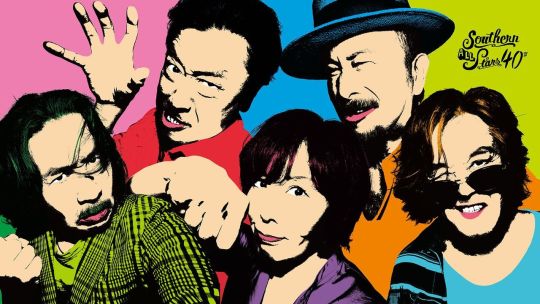
(image credit)
On my first trip to Japan, I met a Japanese college student who liked music. He wore a leather jacket and said he was into rock, so when he sent me a song recommendation from his favorite band, I was expecting something hardcore, metal, and wild. What I didn't expect was to witness a man older than my father wearing shorts and singing his heart out about peace and love to a lit-up sea of thousands of people.
As it turns out, the man was Keisuke Kuwata, founder and lead vocalist of the Japanese rock band, the Southern All Stars. Currently one of the most popular and long-lasting bands in Japan, the Southern All Stars – or SAS – debuted with Kuwata in 1978, composed of him and a number of other students from Aoyama Gakuin University in Shibuya, Tokyo. They have a history of over 40 years, and yet despite several hiatuses over the years as the members have gotten married, had children, and lived through the struggles of life, the band still stands strong.
Similar to the Beatles in their diversity of sound, the All Stars use instruments like the traditional keyboard, guitar, and bass, but also incorporate orchestral sounds as well in their songs. ピースとハイライト (“Peace and Hi-lite”) uses brass instruments in a way that is joyful and festive, bringing an upbeat and happy feel to the track that blends perfectly with Kuwata's rich vibrato. アロエ (“Aloe”) utilizes beautiful violins for the chorus that nearly drown out every other instrument to create the chic, groovy feel of the song. The music video reflects this with the disco outfits, bright colors, and retro theme.
Still, the Southern All Stars are not completely just about sound and image. Peace and Hi-lite (link above), released in 2013, contains some political commentary on the state of the world and Japan as well as the need for peace and harmony in the universe. In the music video, the band members appear as superhero characters, breaking up fights between businessmen and school children wearing masks to represent such world leaders as Barack Obama, Shinzo Abe, and Xi Jinping. The theme here is to limit tension and what may be senseless conflict to create a more unified planet. Jun Hongo, a writer for the Japan Times, notes that this sense of involvement is not characteristic for the All Stars, but nonetheless the track has still received positive praise from some.
Although infrequent, the band has also sent specific messages like in 闘う戦士たちへ愛を込めて (loosely translated as “Include Love for the Fighting Warriors”). Accompanied by a riveting music video portraying everyday salarymen both in their daily lives and as a demons stumbling over each other, climbing up a pile of suited bodies that all look the same, the track comments on the tragedy of competition in Japanese working society. As the music video depicts so viscerally, coworkers may be drinking together one day while one tosses the other from the body-pile the next, all to get to the top. SAS does not seem to be demonizing these figures, but simply asking for sympathy for the state of the society and normality of apathetic ruthlessness.
The Southern All Stars likely has a couple decades left ahead of them, and they will only continue to gain in popularity and make people happy and reflective with their music. Although I was surprised with their sound when I first encountered them, I hope that many others will get to learn of them and their artistry as well.
0 notes
Text
Cultural and Personal, Stereotypes and Generalizations
For this journal, I have chosen to try to free write for 25 minutes. I usually do my journals in a text-based, paragraph-based way, but I also take a lot of time to think about what I am going to say before I say it, so this should be a bit more free flowing, if much less coherent. For this journal, I will discuss the difference between the universal, cultural, and personal, as well as how we may try to change stereotypes into hypotheses to better learn about and understand a culture rather than judging it.
The difference between the universal, cultural, and personal is something I honestly worry about a lot and is hard for me to understand when I do not know the culture. The universal is a bit more understandable, but I have trouble with the latter two. I really like to understand people, know their motivations, and give them the benefit of the doubt if they do something that seems rude to me. For example, I recently got scammed buying something online because I was dumb and did not ask for enough proof of the person's past sales, and although I had a hint that I might have been scammed right after it happened, I gave them several chances to apologize or admit what they had done because it was never clear to me that that was what had actually happened. I was very apologetic and didn't want to offend them, even though I was the one who had given them money for nothing! I worry about being this same way when in a different culture, or even when interacting with people in general. I always want to be nice to others, but I don't want to be a doormat that people think they can just walk all over.
One of my friends is dealing with a situation right now that I don't want to describe too vividly, but they are friends with people from different cultures, and their values aren't quite matching up. My friend tends to think it is a more personal thing, but I keep reminding them that it could simply be cultural because I am sure the others would never want to treat them badly. I really have no idea what could be the true reason behind their behavior, but I am uncomfortable with my friend passing negative judgement on them in general. This also has to do with my tendency to avoid confrontation a lot or speaking badly of others, unless it is clear from my perspective that they have done something wrong or that hurts someone else. Although this is really personal, this quality of mine to try to see things fairly and give people the benefit of the doubt has been an issue in past relationships, when people just want me to be on their side. I can understand that from their perspective of wanting someone to be with them, but my desire to see the best in others prevents me from doing this. I'm not sure if this is a flaw or a strength, but I at least need to work on how I portray this fairness to others, so I can say that I am still with them, but encourage them to think more about how the other person may be feeling, too.
But, back to the cultural versus the personal. I hope that when I study abroad I will be able to learn enough about my future friends that I will at least be able to tell the difference between their personal characteristics and what they have learned from culture. From what I know about Japanese culture, which is reflected in the language itself, many Japanese people (I am trying to generalize) may not directly say how they are feeling or what they want to not impose upon another, or to not seem selfish. This has the potential to limit communication, so that if there is an issue, one person may never know about it, or simply has to guess how to handle it in order to make it better. Combined with my personality – I am clearly non-confrontational, as I have said, and tend to do something similar with not always voicing my true feelings – I think this may lead me into some trouble. Especially considering the generalizations people may have about me, where they may think that as an American, I clearly and bluntly say what I am feeling and what I want at all times. This may result in a situation where the other party thinks I am happy and they are unfairly unhappy without telling me their true feelings, and where I, in turn, may not actually be truly happy, but may not know that the other person is struggling, either. This is a complicated situation, and though I should learn the customs of the culture for communication, I think it is important for everyone in a situation to be happy, too. So, thinking about it right now, I may handle it in a way to try to make sure everyone is happy, or at least has a chance to voice their opinion. I don't know how this may work out, but I guess I will learn more about it as I actually try it out. A big part of this whole experience is the learning component of 'working in the field,' and so while I can read about and hypothesize how I may handle a situation, it will likely be completely different in Japan. It's really hard to discuss something with which I have limited experience, so I think I will leave this here.
Secondly is the idea of changing stereotypes into generalizations or hypotheses. I consider myself to be someone fairly well-versed in social issues, such as racism, transphobia, homophobia, etc., and so I try to be fair and not stereotype people I encounter or see online. Still, as a sociology minor, I know that racism, classism, and all other types of discrimination are instilled and embedded in our thinking as we are socialized in America. I also know that as a white female from an upper middle class home, I have a very limited, privileged perspective and experience with these actual issues. Most, if not all of them do not affect me negatively, yet my privilege plays a big part in their systemic application and reality. Changing stereotypes into generalizations and hypotheses is a good starting point, as we can start asking questions to better understand each other, or to at least think actively about our thoughts and assumptions so we can begin testing them out and keeping them flexible rather than just accepting them as 'the truth' – if there is even such a thing. A good hypothesis in science begins with an idea, and then you do everything possible to prove that idea wrong – you clearly assume that it is wrong until you find empirical evidence that it may, under a certain light, be deemed correct. I think constantly questioning oneself and one's beliefs is very important in this way, as we can learn more about ourselves, why we think how we do and why we think what we think, and this can lead to a better, more holistic understanding of ourselves and the world in which we live.
When I study abroad, I hope to really closely watch people's behavior and be questioning myself all the time so I can better learn about the culture and the way in which I perceive it. I hope to people-watch sometime in Shibuya or in different parts of Japan, and maybe keep a more active journal of how people behave, how I see it from my perspective, and possibly ways the behaviors may be viewed from a native perspective, or at least examining ways in which potential differences may make sense in the cultural context. I really love qualitative research, and so I hope I can learn more about Japan in this way. This is really like a mini field study of what it is like to live as a 21 year-old, white, American girl in Tokyo with moderate experience with the Japanese language, and so I am very excited to live out my adventure/informal research. Although I am not quite sure I discussed the leading topics, my fingers hurt from typing and my twenty-five minutes are up, so I will end here. I think I learned a bit more about myself, or at least documented half-formed thoughts I have had throughout my life about myself and the way I experience and deal with the world and also about what I want to accomplish in Japan. I have a very rare and exciting opportunity, and so I want to use it well.
0 notes
Text
Japan’s Debt May Be Higher Than You Think
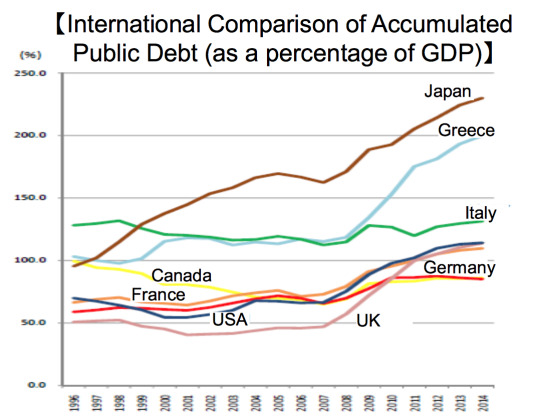
Known as one of the most powerful nations in the world due to its technological and economic advancements, it may come as a surprise to some to learn that Japan is in debt. That is, deeply, deeply in debt – around 233% of the GDP, to be exact.
According to an article by Peter Pham in 2017, the director of One Road Research, the nation has been plagued with growing debt since 1997, attempting to use deflation as a way to manage it since even before, in the early 90s. Through the progression of the stock market stagnation around that time and the bailing out of several organizations by the government, Japan currently holds the highest amount of debt worldwide, as can be seen in the international comparison graph above taken from a government report. Pham notes that since “most of Japan's debt … [is] held by its own citizens” it increases the likelihood the country will be able to pull itself out of the large hole it has dug, but Pham still believes it to be nearly impossible for the entire debt to be paid off.
Still, Japan is trying its best. Since 2012, it has implemented the method of Abenomics, named after Prime Minister Shinzo Abe who has attempted to create a way to strengthen the economy. A report from the Japanese government in January, 2014, describes that Abenomics is composed of “three arrows,” or principles used to create its strategy. First is the “bold monetary policy,” where market prices are examined and heightened so more money can enter the market. Second is the “flexible fiscal policy,” defined as the government's aim to reduce deflation. Finally, the third arrow is the “structural reform of the economy” – this encourages investment by corporations and hopes to support and increase the number of women and elderly in the workforce, expand the general market, and create further economic connections abroad. In sum, Japan hopes to build the economy back up and encourage growth in the market so it can begin repaying its debts. This specific report notes that there had been some progress with Abenomics, and that within just a year, it showed much promise.
However, will it continue to do so in the future? Researchers Yvan Guillemette and Jan Stráský examined exactly the effect the three arrows may have on the Japanese economy using a simulation model in an article from 2015. Relating that the debt has grow exponentially since its state of 70% of the GDP in 1992, they believe it stems from both deficit in funds and high interest rates of the domestic companies from which the government borrows money. Although they agree with the government that Abenomics has the ability to have an impact on decreasing debt, a process which could potentially begin in 2020, the results of their study imply that the use of the three arrows – in the most perfect conditions – may only decrease it to around 200% of the GDP by 2035. While this is a dent in the percentage, it still would remain overwhelmingly high.
Perhaps the largest way the debt impacts the general public is through consistent increases in consumption tax, which is used as a way to acquire funds. As of October 1st, 2019, the tax has officially risen to 10% for most products, while the former percentage of 8% still applies for select goods. The population may not be happy with this, but Dr. Kazumasa Oguro from Hosei University in Tokyo explained the need for it in 2016 when the increase to 10% was being discussed for implementation in 2017. Citing among a few reasons that public finances in Japan would only be maintainable until 2030 or so with the then current tax rate and that the declining population would lead to little to no growth in the GDP due to the reduced workforce, Oguro believed the tax increase would not only be preferable, but necessary. Thus, it seems rather fortunate that his wish has become a reality.
While it may take sometime for the debt to decrease, and although it may never fully vanish, Japan is somehow staying afloat with an appearance as if nothing is amiss. Dr. Masaharu Takenaka from Kyoto's Ryukoku University pieces together in an article that “the total fund excess (or savings excess) matches the total fund deficiency” in the economy, making it so the country walks on a very thin tightrope, surviving while in peril. Abenomics may not be enough to solve such a huge issue, especially when it needs to be dealt with sooner rather than later. In order to keep the economic situation manageable, Takenaka believes “fiscal reconstruction … is still essential,” so hopefully this can occur somehow in the future. Like many of the earthquakes that shake Japan, the high debt looms over the economy, threatening to cause destruction if not prepared for sufficiently. Hopefully, the country can prepare just as well for economic disasters as it does for natural ones.
0 notes
Text
Styles, Strategies, and Stressors
Today, I took several assessments, including the learning style survey, the cultural-learning strategies inventory, and the language strategy use inventory, and while they were interesting, I didn't find the results too surprising. For the learning styles survey, I have recently taken both the VARK assessment and a strengths test assessment which have told me I learn best through reading and writing and am generally very disciplined, responsible, focused on fairness, and empathic. In addition, I have full faith in my Myers Briggs type of INFJ, especially the J component which means that I need structure and preparation versus spontaneity. These came out in my results, where some of the most prominent ones were introversion, closure-oriented, particular, analytic, sharpener, field-independent, and reflective. I think these show that I prefer learning specific details and processing things mostly logically, as well as learning by myself and thinking a lot about material before acting to demonstrate my knowledge. This sometimes can be an issue for me, as though I will think a lot about an assignment before starting, a lot of that thinking is worry, which stresses me out and channels my thoughts into making an assignment a greater deal than it needs to be. This is neither healthy nor productive, so one thing I want to focus on more is the big picture and evaluating how things matter in a larger context. I want to do this not only in my life, but in my learning, as since I am good at ingesting details, I may miss out on the bigger picture some of the time. Hopefully, this can improve my mental health and give me a different perspective on what I am learning each day.
The cultural-learning strategies inventory was interesting to me since it was more of a reflective activity than an assessment, so there weren't concrete results supplied for me – the results are my reflection on my own answers. I've only studied abroad before briefly on the last D-term trip to Japan, so I have not spent much time abroad. Still, I have been learning Japanese for the past five years, and with language comes culture that is demonstrated in kinds of speech level (if the language has it), ways to refer to others and yourself, the way ideas are typically expressed, and how to request things from others or reject someone, etc. So, while I have not lived in a different culture for very long, I have learned much about the culture itself through the language. I think this constant study was the reason why my answers tended to be on the “use and like” side more often than not, since I have had practice reflecting on cultural differences. As a sociology minor, I am also very interested in how culture shapes us and our beliefs, and so I strive to see and understand things from other peoples' perspectives. Since I also like being fair to everyone, I also am very uncomfortable with the idea of one culture's practices being 'wrong', 'weird', or any kind of ethnocentric view. I like to assume people are doing their best and what makes sense for them at the time, and it is really pointless to evaluate any other culture against your own, as just because you have grown up with something does not mean it is 'right.' Truth is subjective in many ways, and I hope in the future we can all appreciate and validate each other's truth (of course, there is a limit to this when it comes to violence against others). I hope that when I live in Japan I will be able to keep an open mind, remain accepting of differences, and work hard to understand them, since then I will be able to better appreciate the country and its people.
The language strategy use inventory was a little less helpful to me than the other two since I am generally familiar with the way I learn Japanese. A big part of learning a language comes simply in learning how to learn a language, and so I imagine this kind of inventory may be better for someone who is still in that process – not to say that I am not, but I am a bit more developed in that area. Still, it was interesting since I was able to see my experience through my answers. In the 400-level Japanese classes I have taken, two were mainly focused on different reading and writing strategies and practice, respectively, and so my answers for those two categories were all in the top two options (“would use it again” and “use and like”). I also consider myself to be better at these two manifestations of language in general, especially compared to speaking. I am not bad per say, but it is harder for me to converse and actively use the language, which I think also relates to my difficulty with spontaneity that was reflected in the learning style survey. Still, I found some good tips within this survey, like paying attention to body language when listening and asking for help when speaking. I tend to try to be more independent, but I need to realize that it is okay and necessary sometimes to ask for assistance so I can do better in whatever I am trying to accomplish. That is a lesson for me to learn that goes way beyond just learning a language, and one where I will have to battle with the individualistic, independence-valuing culture in which I have grown up.
I think the stress factors described in the departure tips section of Maximizing Study Abroad are important to be cognizant of as I go abroad. Primarily, I want to focus on cultural immersion, cultural isolation, and visibility. Starting with immersion, I believe it will be a bit easier for me to become immersed in the culture since I know the language. Although it was more of a tourist experience, I felt this way on the D-term trip, being able to read, hear, and speak Japanese frequently to others in my environment. Although I mentioned before that I am not as good at speaking, I think I was in my prime when I was able to discuss higher concepts with some of the students I met there, such as ideas for our respective theses and social situations happening in Japan. This was really exciting for me, although incredibly difficult, but I do feel like I improved and grew even in the two weeks I was there. Still, speaking and ingesting a different language, as well as the culture itself, can lead to fatigue, which worries me. I am also an introvert, so I worry this may get particularly exhausting for me. To try to combat this, I plan on taking time for myself in my dorm room – which is private – to recharge and remind myself of home and my first language. This goes into the second point of cultural isolation, which I think I will be able to manage fairly well because of how my dorm is structured – it holds both Japanese and international students, so hopefully I will be able to find some Americans there to relate to and reestablish my culture (at least, I will always have my fellow NCC student!). Finally, there is the issue of visibility. In Japan, you are either Japanese or not, and foreigners regularly stand out. During D-term, my friends and I had several experiences where people would blatantly take pictures of us without asking because it must have been an unusual site to see several white, blonde girls together. Although I can't conceal my race, I hope to lessen my visibility by accommodating properly to cultural norms and even the fashion – at Aoyama, right in the city, it will make me stand out even more to wear jeans or leggings everyday like I do now. This will take some effort, but hopefully I will do my best to blend in. There is also the issue of being able to speak Japanese – many people don't assume that a foreigner can, and the basic response to even one or two words of the language is high praise (although it is more from surprise than anything else). This will likely be something I will typically encounter, and it will be my job to be patient with this, as well as assertive enough to respond in Japanese to an English question, otherwise I will never get to practice my language skills. I will have to work hard to overcome these potential stress factors, but by knowing and thinking about them now, I will be better prepared for the future.
0 notes
Text
Who Am I?
Deciding and discovering who I am is something I think I will have to work towards for my entire life. As human beings who are each unique and beautiful in our own ways, we all are constantly going through states of change – change is the only thing we can be assured will remain constant in life. The main roles and descriptors I used for myself in the activity in Maximizing Study Abroad were student, tutor, friend, researcher, dancer, daughter, artist, and ARMY (the fandom name for the group BTS). In the further development of these descriptions, I noticed some patterns, such as my values of being hard-working, disciplined, and helpful to others. The last one in particular interested me since it showed up many times, and I believe it could both be very helpful and simultaneously ineffective as I study in Japan.
As described in the third chapter of Understanding Global Cultures by Gannon and Pillai, Japanese culture is very collectivistic and group-oriented, meaning that members will often put the needs of the group before their own if it is more holistically beneficial. Another important value the text describes is wa (和), meaning peace or harmony, and realized in the aim to keep the balance between all persons in the culture at all times, or as constantly as possible. Although I come from an individualistic culture, I do feel that my desire to help others – whether it is in learning a language or concept, taking on responsibilities in a club so others don't have to worry or be stressed out, or trying to lift the moods of my friends – matches with these Japanese values. I enjoy working alone much more than with a group, but when I am a part of one, it is in my nature to try to be a team player and make things easier for everyone else. I also am extremely conflict avoidant and prefer to see the best in people, even when I am frustrated with them for not fulfilling duties or ignoring responsibilities. Thus, I strive for harmony in most situations, and I often will not speak up at all or merely hint if there is an issue, particularly if it is with a friend. I think these values will be desirable in Japan, since it is important that I accommodate to the values of the culture as closely as possible to be somewhat accepted by it, so I have a head start when it comes to valuing peace and the collective good. Still, my desire to be helpful may conversely backfire, as I may try to insert myself where I do not belong and end up causing more harm than good since I will not know the particulars regarding kata, the way to do things, or other necessary knowledge in order to act as an authority figure. Thus, I will need to make sure I am constantly aware of my position in the social circumstances and context so I do not overstep my boundaries and accidentally transgress. Visible actions seem to matter more than intention, so it will be vital that I keep this in mind.
In being someone who tries to think of others and has a certain amount of empathy, I also think the Japanese mindset the text discusses in terms of seeing situations in shades of gray is more applicable to me than the U.S. tendency to view things in black and white. I believe each person has a unique perspective, as well as motivations for behavior we are not always or ever aware of, and there are many sides to each story. Some may be more objectively truthful than others, but everything is relative. I think this view may also come from my role as a researcher interested specifically in qualitative methods, and so I know and am fascinated by relativity and multiple truths. There is no such thing as an objective truth, but by putting pieces together from many people, we can discover more about the specificities of a relative truth. In terms of Japan and studying abroad, I think being able to think in the shoes of other people and acknowledge the complexities of circumstances will be very helpful. Hopefully I will be able to more easily break away from ethnocentrism and begin to be curious about new things I encounter in the culture. I also think it will assist specifically in Japan since, as I have learned while studying the language, people are often ambiguous when communicating, and it sometimes becomes a guessing game to discover what they truly mean. Thus, if I am able to see thing from the perspective of others, hopefully it will make it a bit easier for me to succeed in interacting well with others.
As I work to learn more about myself and who I am while in Japan, I specifically want to focus on loving myself. Although facets of myself and my personality may hopefully be helpful when I go there, I will undoubtably make mistake after mistake. With these errors, even though I wish to learn from them, I also don't want to be overly hard on myself. I have a tendency to beat myself up a lot when I don't rise to my personal expectations of how I should behave in my roles in life, which are high. So, I want to try to make that somewhat looser while studying abroad – I know I will mess up, but I need to forgive myself and simply do better the next time. Resilience is also a trait I want to develop generally in my life, and I hope Japan will enable me to do so as I continue to learn more about who I am.
0 notes
Link
Interested in some of the many ways to spend money in Shibuya? Check out my story map!
0 notes
Text
D-term, 12. 18 - 2
The second collection of photos. 姫路城から観覧 - View from Himeji Castle, Himeji.
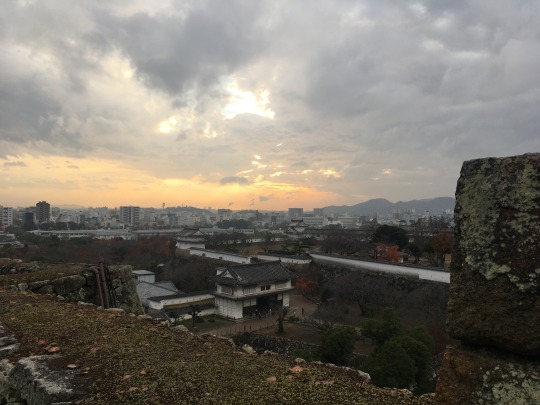
金閣寺 - Kinkaku-ji, Kyoto.
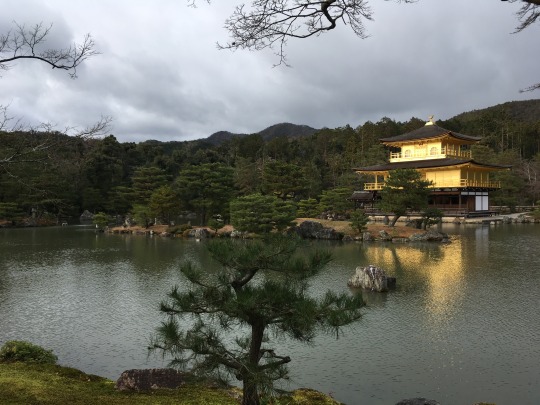
清水寺 - Kiyomizu Temple, Kyoto.
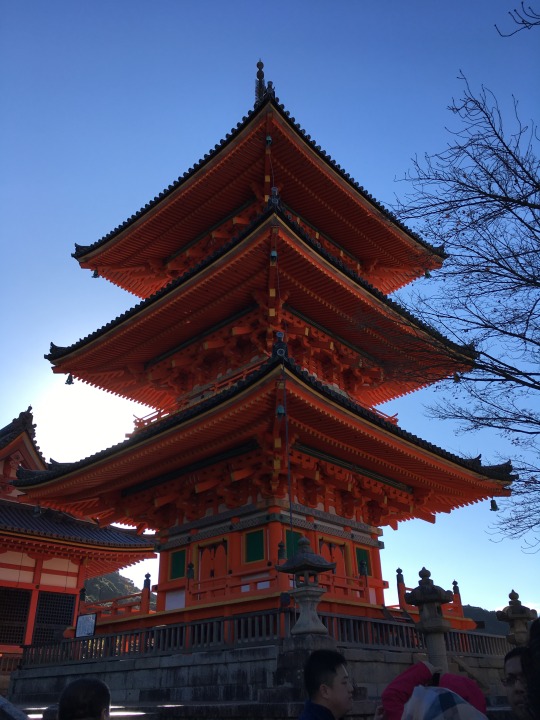
千本鳥居 - Torii Gates, Fushimi Inari Shrine, Kyoto.
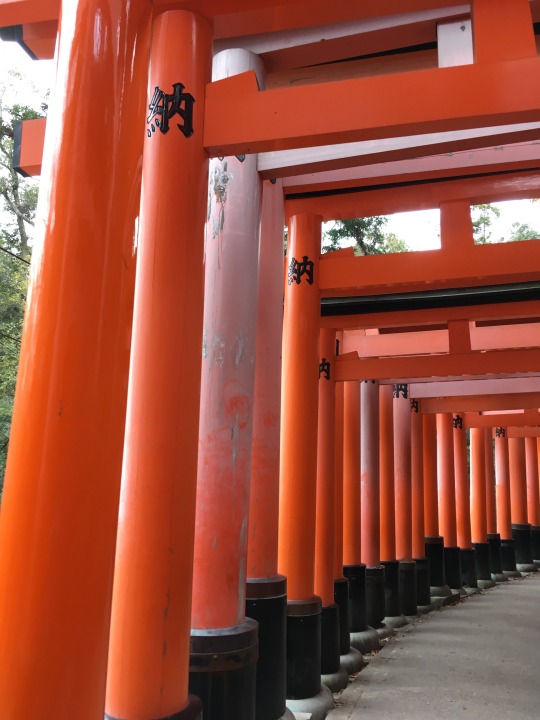
稲荷山から見える京都 - Kyoto from Inari Mt., Kyoto.
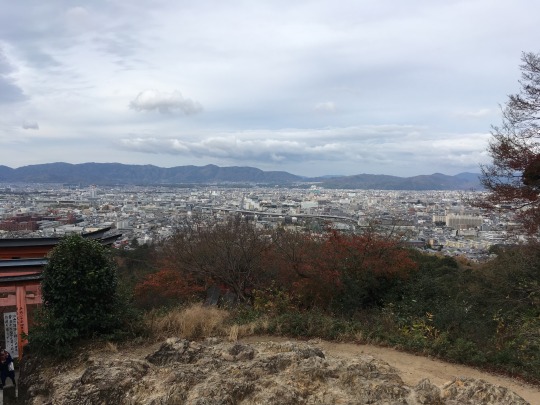
teamLab Borderlessの展示 - Exhibit from teamLab Borderless, Tokyo.

青の洞窟 - Blue Cave, Shibuya.

0 notes
Text
D-term, 12.18 - 1
I took numerous photos when I went to Japan for the first time this past winter, but never posted any. Here are some of the most memorable shots I took/places I experienced. 隅田川 - Sumida River, Tokyo.
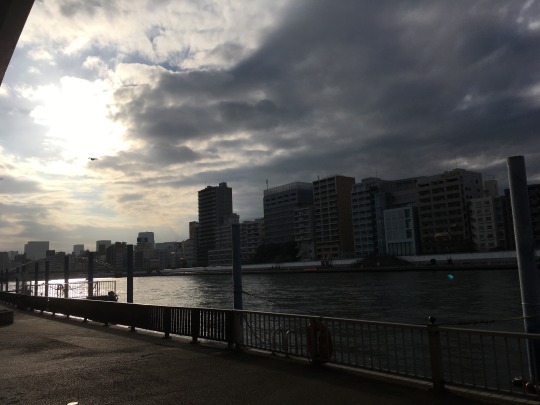
109 - Shibuya, Tokyo.
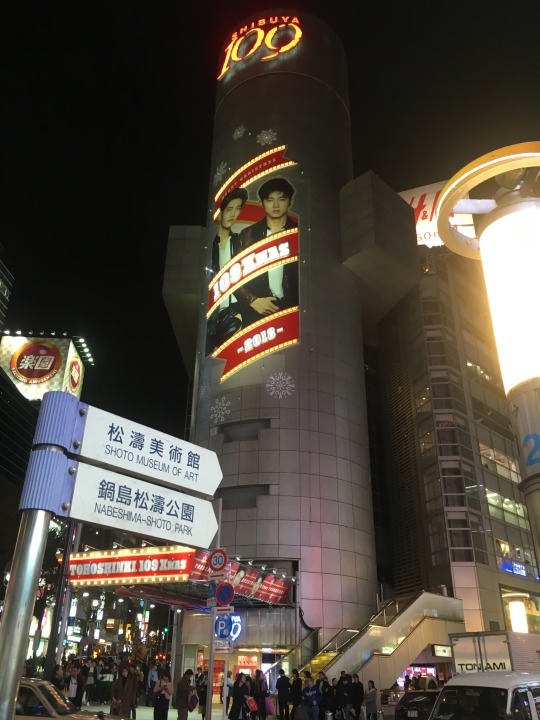
新幹線から観覧 - View from the Shinkansen.
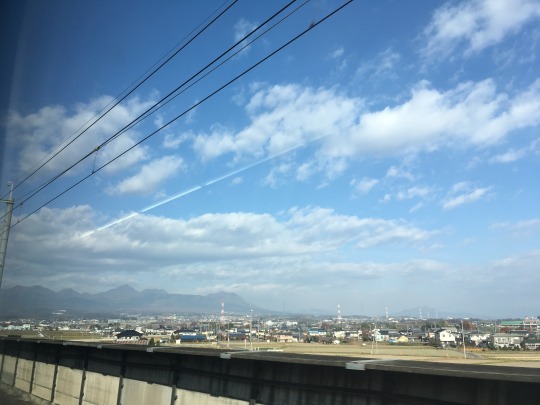
兼六園 1 - Kenrokuen Garden, Kanazawa.
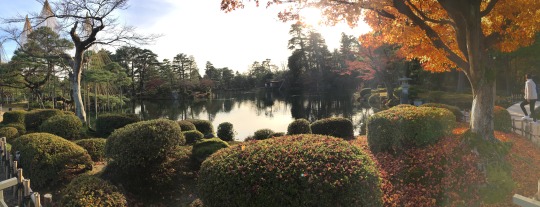
兼六園 2 - Kenrokuen Garden, Kanazawa.

黒猫 - Cat in Kanazawa.
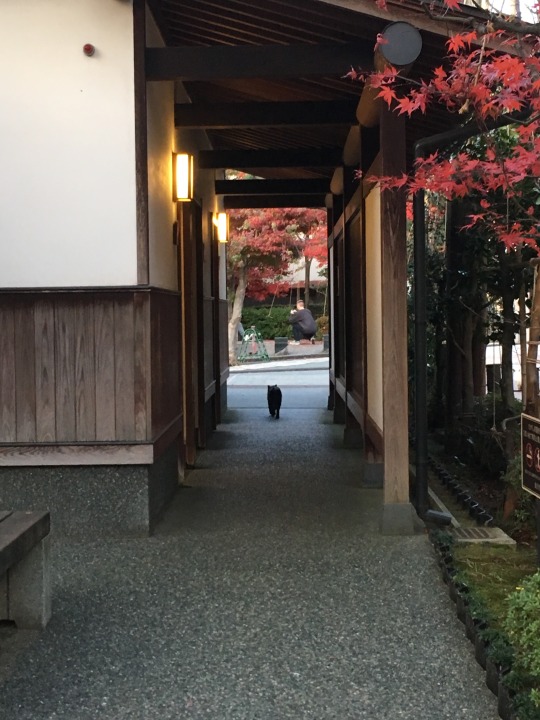
広島平和記念公園 - Hiroshima Peace Memorial Park, Hiroshima.
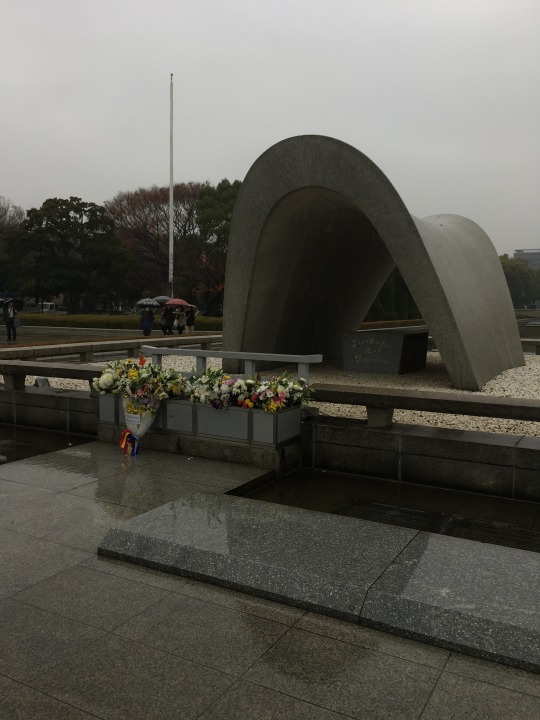
厳島神社 - Itsukushima Shrine, Miyajima.
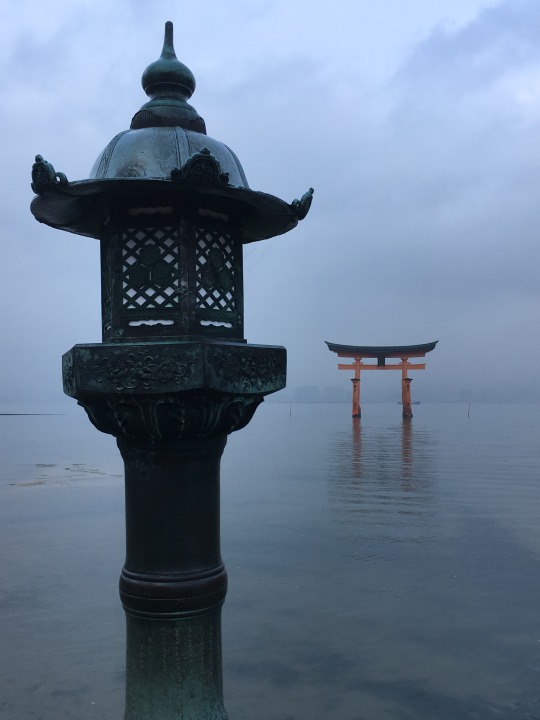
1 note
·
View note